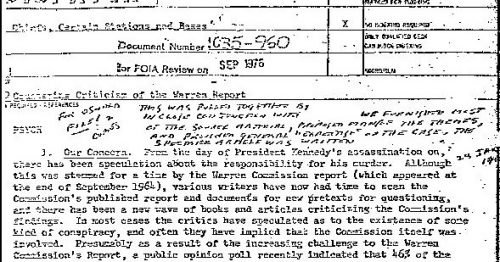
In this episode we examine the aspects of psychological warfare, the use of non-conventional weapons of emotional, cognitive, and psychological weapons used to persuade society towards and agenda or mindset.
Listen to “Psychological Warfare in 2020” on Spreaker.
We will cite some examples and project some scenarios showing where this is present. As well as give insight to the origins and modern development of such techniques going into the process to direct citizens towards desired agendas and the people involved in its development.
The end game is the New World Order of Communism (the soft version of State-controlled Oligarchy Utopia).
Some of the details in this episode include:
Early projects for mind control like MKULTRA.
Soviet and Chinese brainwashing techniques under Allen Dulles, Director of Central Intelligence, who employed Dr Wolf and Dr Hinkle to submit a secret report to him about communist methods of brainwashing that was the strategy used by 1953. This brought over complying scientist agents under Operation Paperclip.
The aspects of psychological warfare using fear, gaslighting, and propaganda.
Operation Mockingbird created an alliance between the CIA for screening and controlling feeds to the media. CIA Director William Casey said,
“We’ll know our disinformation program is complete when everything the American public believes is false.”
Using “Conspiracy Theory” as a derogatory label created by the Clandestine Services Unit of the CIA in 1967

Joseph Goebbels associate of Adolf Hitler was known for his skills in public speaking mastered in use of entertainment and media for propaganda.
Edward Barnays, father of modern propaganda techniques studying the psychological behavior of humans, used his information for propaganda used by the Elite to direct citizens to their desired conclusions. Bernays pioneered the public relations industry’s use of psychology and other social sciences to design its public persuasion campaigns:
“If we understand the mechanism and motives of the group mind, is it not possible to control and regiment the masses according to our will without their knowing about it?”
Bernays explained in his 1947 essay calling his technique of opinion-molding as “The Engineering of Consent”, the task of getting people to support ideas and programs. He believed to move the masses by using the solution of “order out of chaos.”
Dr Bruce Lipton is a pioneer in Epigenetics, the study of how attitudes and emotions affect biological functions. The placebo effect is when a sugar pill is given with the psychological effect on the person that it is a remedy and cures the sickness. Dr. Lipton extends this concept to what is called the nocebo effect in which negative attitudes and emotions – especially fear and anger – can cause ailments to occur. One can psychologically become sick as well.
